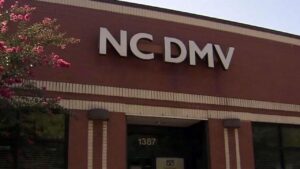By: Jordan Meadows
Staff Writer
North Carolina Governor Roy Cooper signed into law four bills on Wednesday. One of the bills focuses on creating a registry managed by the North Carolina Department of Revenue specifically for certified vapor products, such as e-cigarettes and nicotine-containing consumables. Starting at the end of 2024, manufacturers will be required to obtain certification to sell these products in the state.
 Another bill signed by Cooper introduces several amendments to transportation laws. Key updates include the introduction of digital driver’s licenses for mobile devices, on-demand printing of temporary registration plates, implementation of work zone safety courses, and increased penalties for littering. Legally, this mobile driver’s license will hold the same status as a physical one, pending a comprehensive study and plan by the DMV.
Another bill signed by Cooper introduces several amendments to transportation laws. Key updates include the introduction of digital driver’s licenses for mobile devices, on-demand printing of temporary registration plates, implementation of work zone safety courses, and increased penalties for littering. Legally, this mobile driver’s license will hold the same status as a physical one, pending a comprehensive study and plan by the DMV.
The third piece of legislation signed is the annual Farm Act, which passed unanimously in both chambers of the Assembly. This bill includes exemptions for agricultural areas from municipal stormwater fees and introduces a tax credit for certain land conservation-related donations.
This act also aims to reduce regulatory burdens on shellfish farmers, enhance penalties for transporting live feral swine, extend general animal waste management system permits, and make improvements to the North Carolina Department of Agriculture and Consumer Services (NCDA&CS) and the Department of Environmental Quality (DEQ).
“The conservation tax credit I proposed in my budget and passed into law with this bill will help us reach the goal I set of permanently conserving one million new acres of natural lands by 2040,” Cooper said in a statement. “Protecting forests, wetlands, and farmlands makes us more resilient to climate hazards, reduces carbon in our atmosphere, promotes military readiness, and supports local economies.”
Wake County’s high school leadership academies are authorized to maintain their early college status and expedite partnerships with new colleges under another signed bill.
Governor Cooper also signed Senate Bill 319, Senate Bill 355, and House Bill 199, which enabled the issuance of digital driver’s licenses. Senate Bill 355, known as the North Carolina Farm Act of 2024, passed unanimously and includes tax credits for corporations donating property for farmland preservation, wildlife habitats, historic landscapes, floodplain protection, and public trails or access.
Gov. Cooper vetoed House Bill 155 and House Bill 556. HB 155 aimed to introduce title certification for all-terrain and utility vehicles and allow modified utility vehicles to operate on roads with speed limits up to 55 mph. Cooper expressed concerns about the safety implications of such vehicles on state highways.
“This new law would allow certain off-road vehicles to operate on four-lane highways at speeds of up to 55 miles per hour,” Cooper said. “These vehicles lack many of the safety features found in traditional vehicles which creates an increased risk of serious injury or death for people on our highways.”
HB 556 addressed various aspects of tenancy and landlord regulations. Part of this bill would have restricted local governments from prohibiting landlords from refusing to lease to tenants based on their use of federal housing assistance. Cooper criticized this aspect, arguing it would limit local government authority to protect housing rights.
“This bill would make it harder for low-income families, the elderly, and people with disabilities to find affordable rental housing by preventing local governments from protecting against rent discrimination based on lawful income. It also creates legal ambiguity regarding when eviction orders become effective and the potential for increased legal expenses for renters in disputes with landlords,” Cooper said.
Although the General Assembly has adjourned, they retain the ability to reconvene on specific dates, including July 10, to consider potential veto overrides among other matters. Given Republican supermajorities in both chambers, overrides of Gov. Cooper’s vetoes are deemed likely. Cooper’s decisions coincided with his participation, albeit virtually, in a meeting of Democratic governors convened by President Biden.